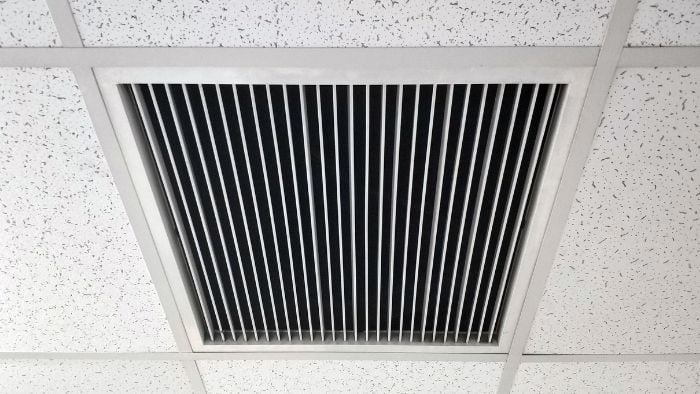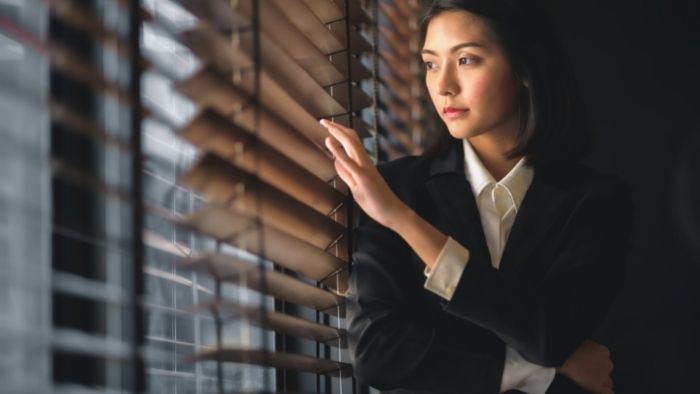
Ensure Your Workplace's Airflow Is Free From Airborne Coronavirus
Are You Hiring?
Find candidates in 72 Hours with 5+ million talents in Maukerja Malaysia & Ricebowl using Job Ads.
Hire NowDid you remember the last time you had the ventilation and air-conditioning system in your workplace serviced?
Last month, the United States Centers for Disease Control and Prevention (CDC) had recognised that SARS-CoV-2, the virus that causes Covid-19, is airborne. Now, many employers are focusing on the safety of the indoor cooling and ventilation systems in their workplaces.
Local researchers' horrifying find
Here, Universiti Kebangsaan Malaysia (UKM) researchers found that Covid-19 can remain suspended in the air for eight hours maximum in enclosed spaces without proper ventilation. Their studies also revealed that the virus could spread as far as six metres in aerosol particles.
UKM's Department of Earth Science and Environment Associate Prof Dr Mohd Shahrul Mohd Nadzir led the research. The team also comprised virologists Associate Prof Dr Nazlina Ibrahim, Dr Norefrina Shafinaz Md Nor and Dr Yip Chee Wai.
There were two studies, the first was carried out from April to May 2020, and the second was from August to October 2020.
In the second study, Dr Mohd Shahrul said the team found that enclosed spaces without fresh air circulation and with air-conditioning operations that recycle the same air could facilitate the virus transmission in the air via aerosols.

Workplaces should have proper ventilation system.
He added that buildings must have a sound ventilation system. Houses should have the windows and doors kept open, while employers should maintain the air-conditioning and ventilation system in the offices and factories regularly.
According to him, the lack of proper ventilation and poor maintenance of the air-conditioning system can cause workplace clusters if the coronavirus infects a worker.
Workplace clusters
In May 2021, Health director-general Tan Sri Dr Noor Hisham Abdullah had stated that a medical publication, The Lancet, had stated the possibility of coronavirus being airborne and not just spreading via droplets.
Many workplace clusters had emerged since the start of the pandemic in January last year. As of May 26 2021, the Health Ministry has reported 1,085 workplace clusters, involving 129,322 cases.
A worrying trend, the ministry reported that between April 1 and May 26 2021, there were 287 workplace clusters with 17,087 cases. As of writing, 233 of these clusters are still active.
The importance of fresh airflow
The risk of airborne Covid-19 transmission is one reason why employers asked their workers to wear a face mask while working.
But, according to Dr Mohd Shahrul, other standard operating procedures (SOP) such as physical distancing and frequent washing of hands may not provide enough protection.
He pointed out that during the total lockdown of the MCO, only 20% of the civil servants and 60% of private-sector workers can work at the office. However, even if they sit far from each other, there is still a chance of infection if the workplace is not well ventilated.
Dr Mohd Shahrul said that the coronavirus could remain in the air for several hours, making it harder to manage transmission, especially in buildings with poorly maintained air-conditioning and ventilation systems.

Opening the windows can also improve the office airflow.
A Covid-19 positive person could cough, sneeze or talk in such enclosed areas, releasing droplets that can get caught in the small suspended one-micrometre-sized air particles.
The scary part is, the research team found that the much smaller coronavirus can remain in the air for over eight hours if there is no change in the airflow.
Universiti Tunku Abdul Rahman indoor air simulation expert Associate Prof Dr Bernard Saw Lip Huat said they conducted their second study in a closed hospital ward with a Covid-19 positive patient. The ward used cassette air-conditioning units that could only recirculate the air within the enclosed space, without air flowing from outside.
They found that the virus did not go outside the ward and remained suspended in the air in the ward as there was no fresh airflow to cleanse the virus.
The potential danger of airborne coronavirus
Given the findings of local and international researchers on the potential danger posed by the airborne Covid-19 virus and the highly transmissible variants from other countries having been detected in Malaysia, employers must pay attention to their indoor air quality.
Saw said that since most employers use centralised air-conditioners, employers must also install a system that allows fresh air to flow into the workplace at regular intervals.
He said that employers in China adopted this practice. The air conditioning system is controlled so that for 30 minutes and three times a day, they let fresh air into the building to flush out the indoor air. He added that since the costs are high, not many employers are willing to implement the system.
Saw also said that there is no point in sanitising the workplace without maintaining the air-conditioning system regularly. The transmission risk will arise again if a Covid-19 infected employee comes to work two days after the employer disinfects the workplace.
In his opinion, Saw said that employers could improve indoor air quality by using air purifiers with HEPA (high-efficiency particulate absorbing) filter.
"It (air purifier) will not give 100% protection but can help to reduce the transmission of the virus in the air.
He added that the air purifier's effectiveness also relates to where it is placed. It is less effective if placed below the air-conditioner or on the floor. One should instead place it at a higher point in a room.
Face masks remain crucial
UKM public health specialist Prof Dr Sharifa Ezat Wan Puteh said employees must wear face masks while at work. She said that the mask type could make a big difference in protecting employees against the Covid-19 virus.
She said the usual fabric mask could prevent users from inhaling large droplets but not the smaller particles that could penetrate through the fabric.
She said that employees should use the N95 mask or any mask recommended by the Health Ministry. She added that there are no exceptions as anyone who neglects this SOP exposes themselves to the risk of Covid-19 infection.
Dr Sharifa Ezat stated that now is the time for employers to provide a safer working environment for their employees. According to her, the workers are not only facing the risk of Covid-19 infections but also various other health issues related to the Sick Building Syndrome.
Source: BERNAMA
Click here to Post Job for 30 Days + Get Extra 30 Days >> https://bit.ly/3572wfO.
If you have any questions, please feel free to Whatsapp us at 018 966 6610 / Click Here >> https://bit.ly/3xcII6G
Articles that might interest you
How to Register for MITI's CIMS 3.0 and Obtain Approval Letter
How to Renew Your SSM Business Registration Online
How to Register for PEMERKASA+'s PSU 3.0

